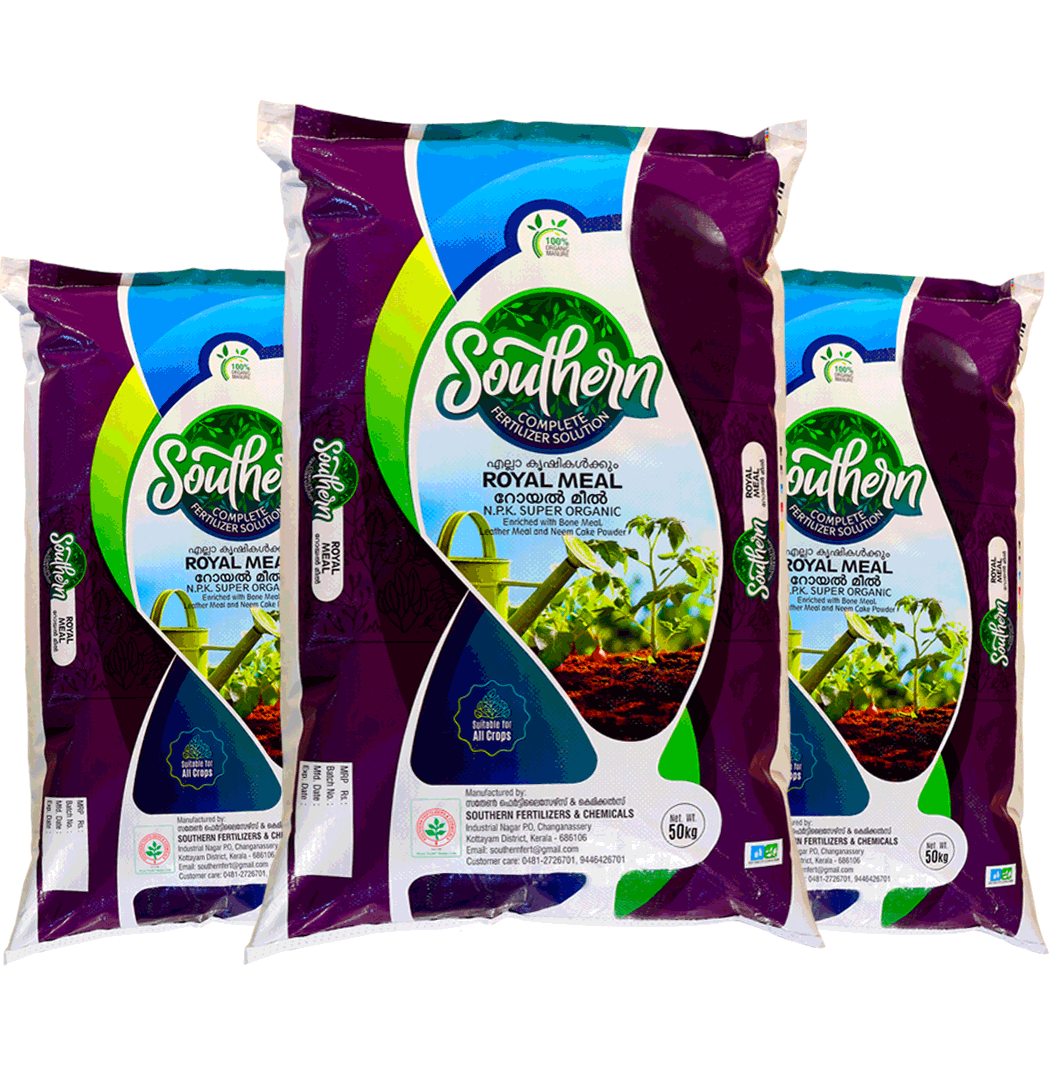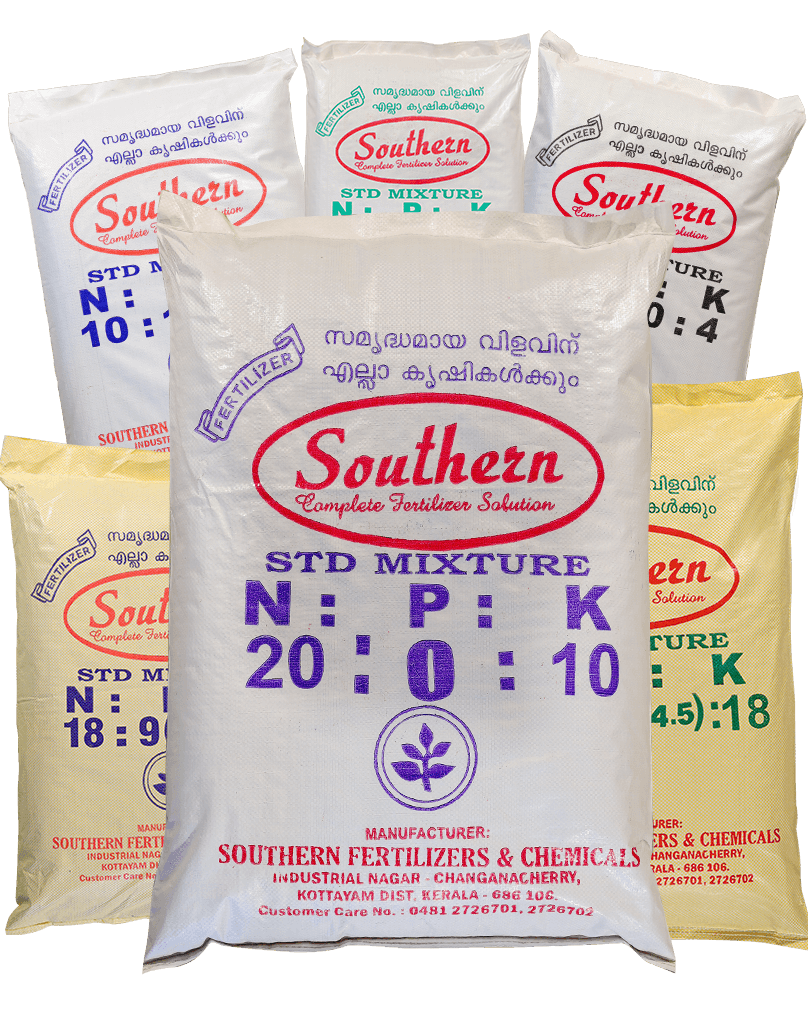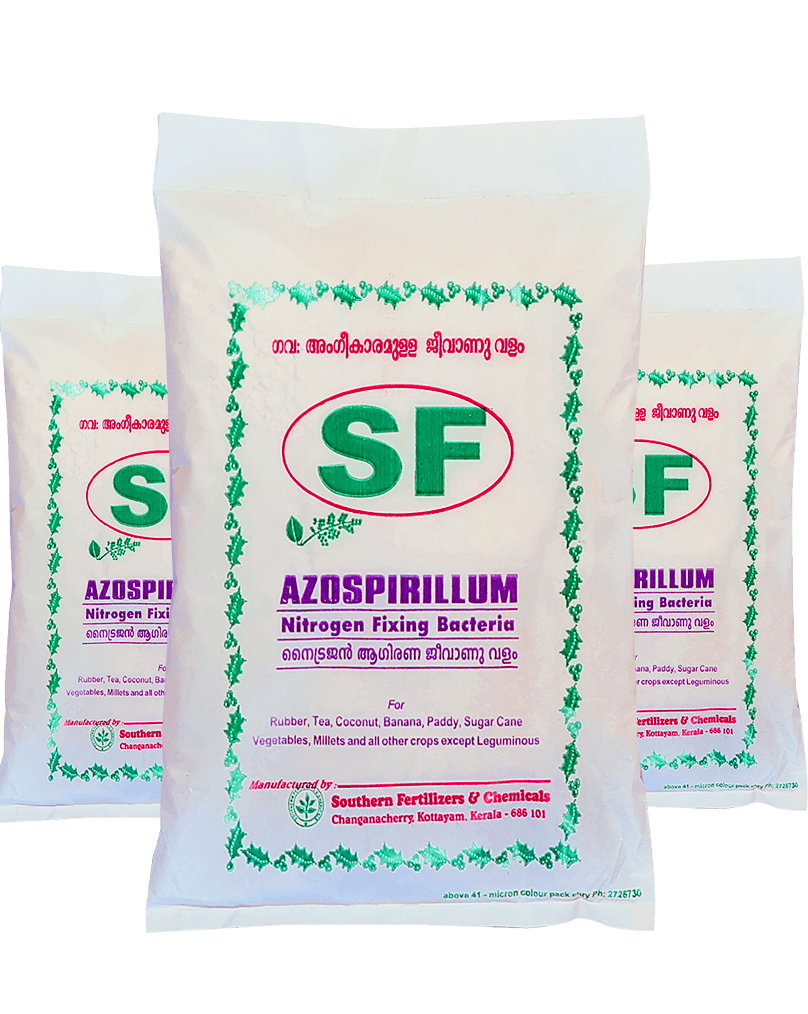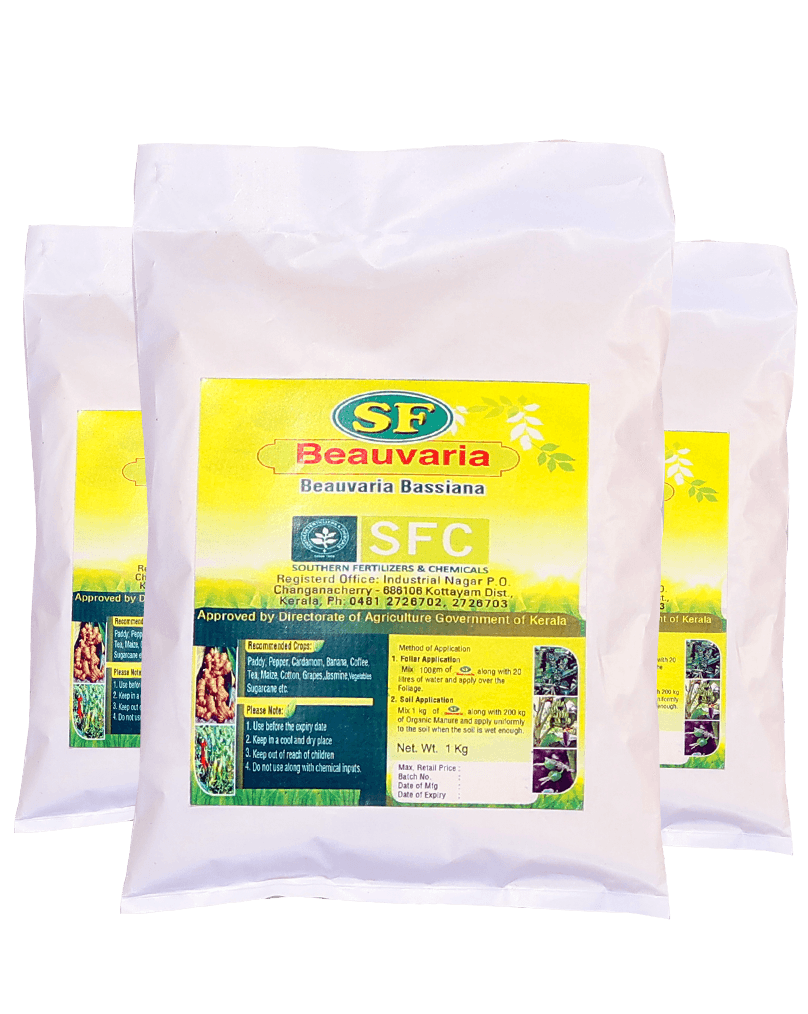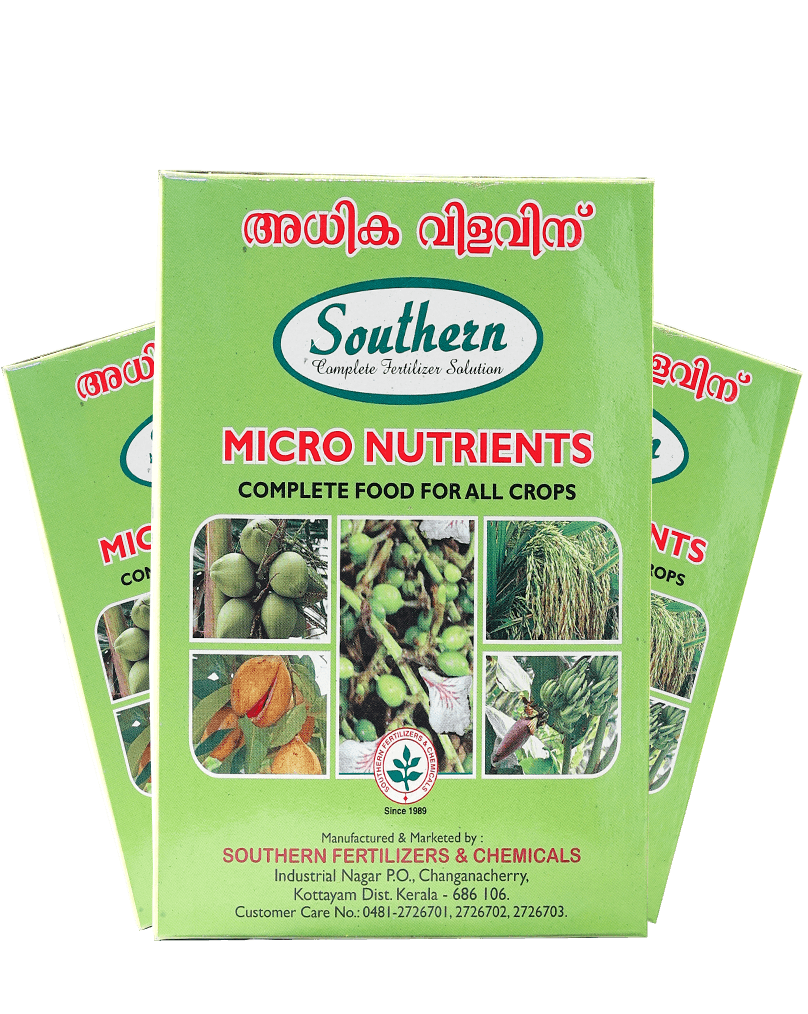Bio Fertilizers
Azospirillum
Azospirillum is a genus of nitrogen-fixing bacteria that closely associates with the rhizosphere soil. These bacteria not only fix atmospheric nitrogen, making it available to plants, but also synthesize phytohormones, especially indole-3-acetic acid, which promotes plant growth. Azospirillum enhances plant tolerance to both abiotic (non-living) and biotic (living) stresses, making it a versatile and beneficial addition to agricultural practices.
Benefits:
- Nitrogen Fixation: Converts atmospheric nitrogen into a form that plants can readily absorb, reducing the need for chemical fertilizers.
- Phytohormone Production: Synthesizes indole-3-acetic acid, promoting root development and overall plant growth.
- Stress Tolerance: Enhances plant resilience against various environmental stresses.
- Versatile Application: Suitable for soil application, drip irrigation, seed treatment, and seedling root treatment before transplantation.
Dosage: Mix 10 grams or 10 milliliters in one liter of water. Can be used for seed treatment, seedling root treatment, or direct application to soil.
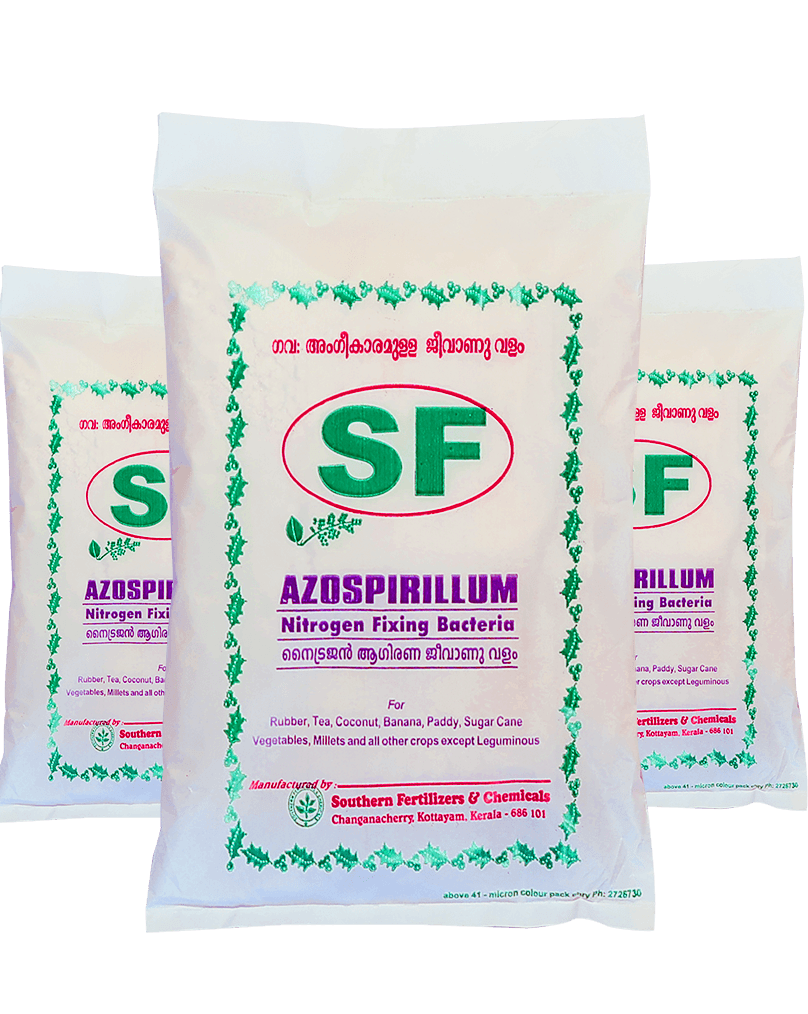
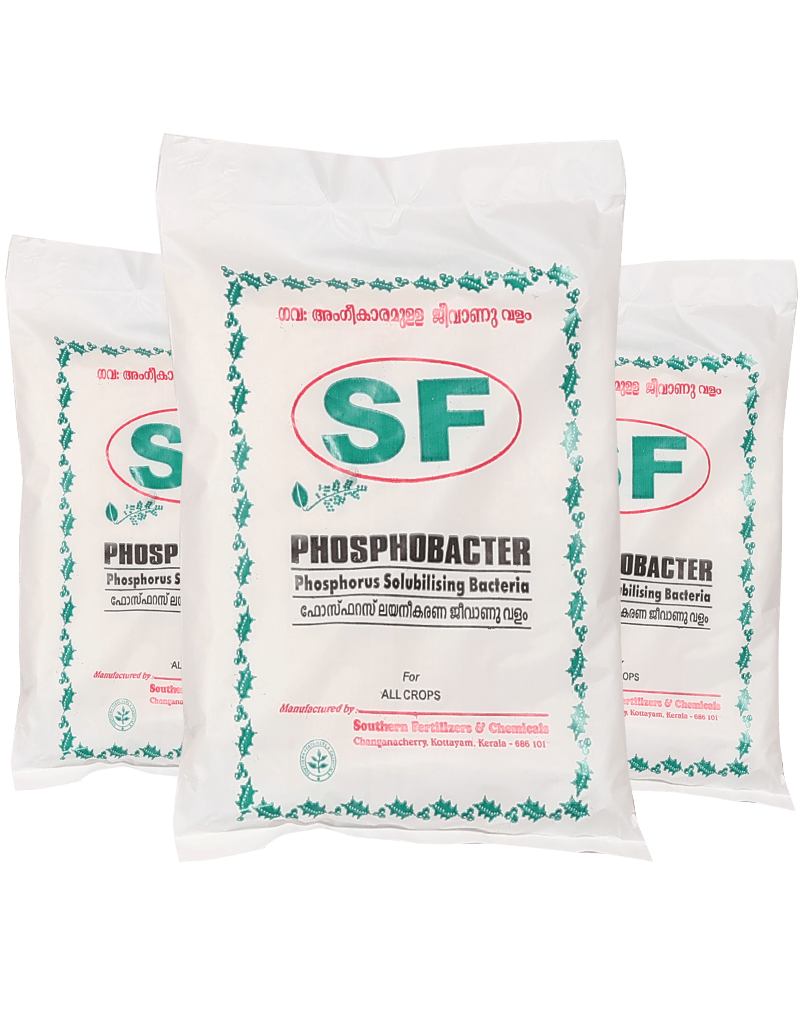
Phosphorous Solubilizing Bacteria
Phosphorous Solubilizing Bacteria (PSB) are capable of converting insoluble soil phosphates into soluble forms, making phosphorus available to plants. This process is crucial for improving the growth and yield of a wide variety of crops. PSB also nurtures the soil by enhancing its nutrient content and promoting a healthier soil microbiome.
Benefits:
- Phosphorus Solubilization: Converts insoluble phosphates into forms that plants can easily absorb, improving phosphorus availability.
- Enhanced Growth: Promotes better root development and overall plant growth.
- Yield Improvement: Increases crop yield by ensuring optimal phosphorus nutrition.
- Soil Health: Improves soil fertility and supports a healthy microbial ecosystem.
Dosage: Mix 10 grams or 10 milliliters in one liter of water. Suitable for direct application to soil.
Rhizobium
Rhizobium is a genus of nitrogen-fixing bacteria that forms symbiotic relationships with legume plants. These bacteria colonize the roots of legumes, forming nodules where they convert atmospheric nitrogen into a usable form for the plant. Rhizobium significantly enhances root nodule formation and boosts the rate of photosynthesis, leading to healthier and more productive legume crops.
Benefits:
- Symbiotic Nitrogen Fixation: Efficiently fixes atmospheric nitrogen in collaboration with legume plants.
- Nodule Formation: Increases root nodule formation, enhancing nitrogen availability for the plant.
- Photosynthesis Enhancement: Boosts the rate of photosynthesis, promoting vigorous plant growth.
- Legume-Specific: Particularly suitable for legume crops, improving their overall health and yield.
Dosage: Mix 10 grams or 10 milliliters in one liter of water. Can be used for seed treatment or direct application to soil.
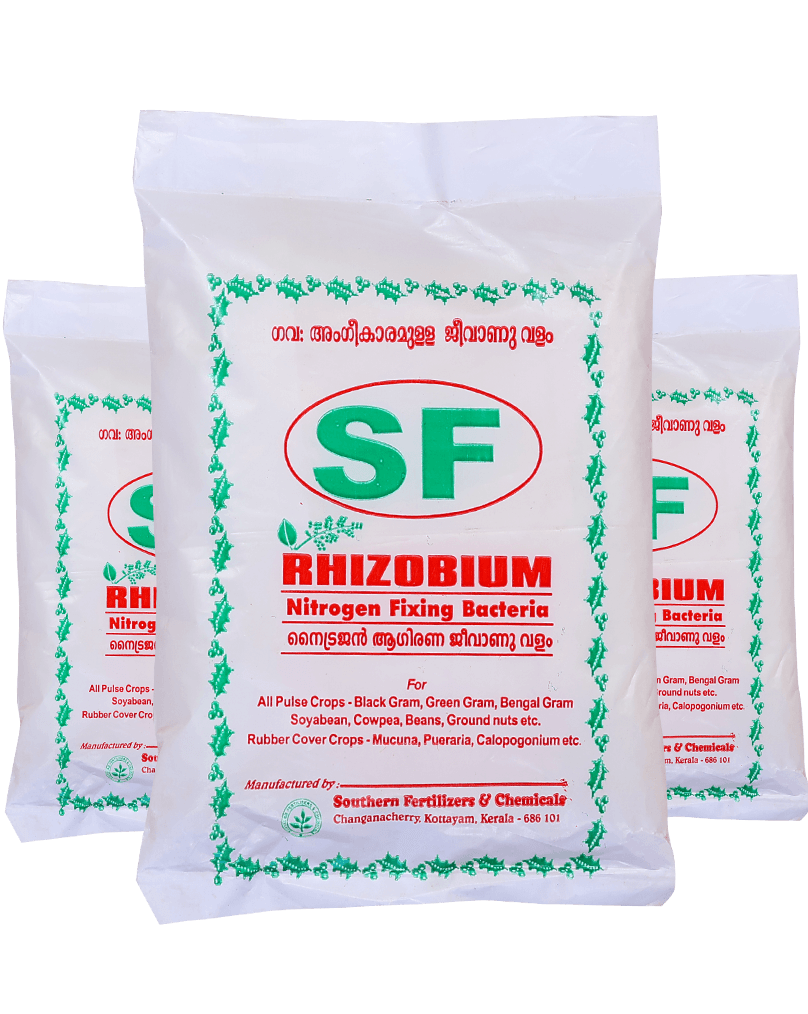
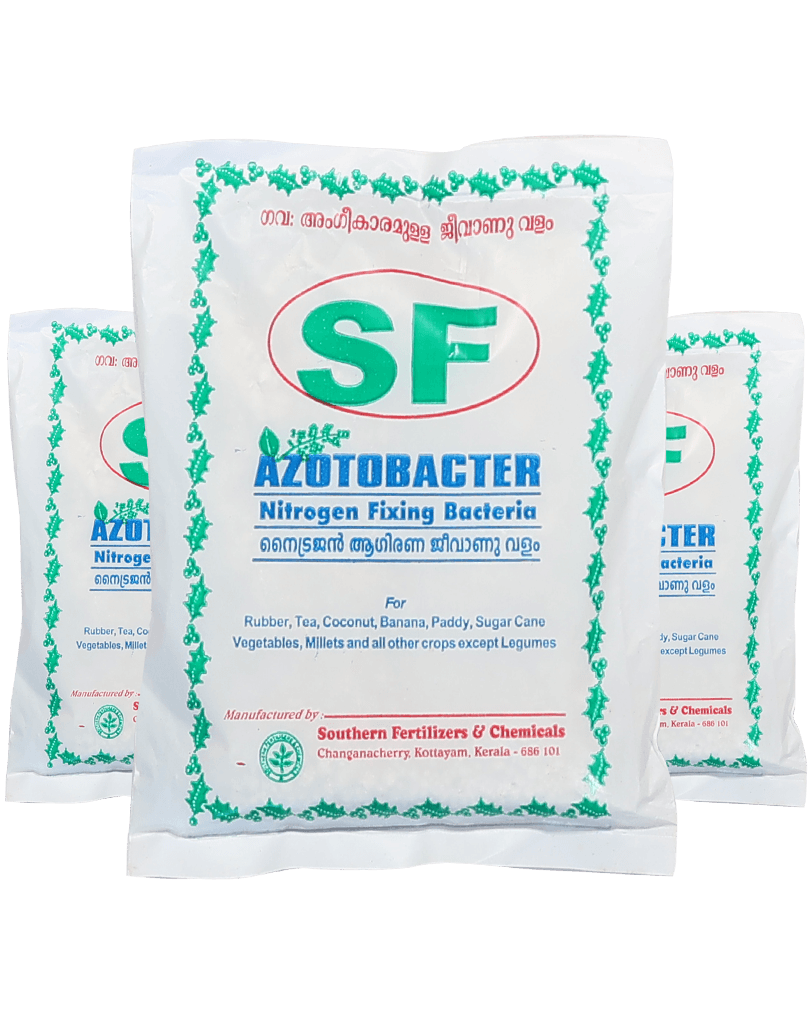
Azotobacter
Azotobacter is a genus of free-living nitrogen-fixing bacteria that converts atmospheric nitrogen into forms usable by plants. These bacteria also synthesize plant hormones, solubilize phosphates, and suppress phytopathogens, reducing their harmful effects. Azotobacter is highly beneficial for a variety of crops and supports sustainable agricultural practices.
Benefits:
- Free-Living Nitrogen Fixation: Converts atmospheric nitrogen into plant-usable forms without needing a host plant.
- Hormone Synthesis: Produces plant hormones that promote growth and development.
- Phosphate Solubilization: Solubilizes phosphates, making phosphorus more available to plants.
- Pathogen Suppression: Reduces the impact of phytopathogens, promoting healthier plant growth.
- Versatile Application: Suitable for soil application, drip irrigation, seed treatment, and seedling root treatment before transplantation.
Dosage: Mix 10 grams or 10 milliliters in one liter of water. Can be used for seed treatment, seedling root treatment, or direct application to soil.
Bio Potash (Frateuria aurantia)
Bio Potash contains the potassium-solubilizing bacterium Frateuria aurantia, which enhances plant potassium uptake. Research has shown that the use of this bacterium improves plant height, potash uptake, chlorophyll content, and overall yield. Bio Potash is suitable for all crops and supports balanced plant nutrition and robust growth.
Benefits:
- Potassium Solubilization: Converts insoluble potassium compounds into forms readily absorbed by plants.
- Improved Plant Height: Enhances plant stature and structural integrity.
- Chlorophyll Content: Increases chlorophyll content, boosting photosynthesis and plant vitality.
- Yield Enhancement: Improves crop yield by optimizing potassium nutrition.
- Universal Application: Suitable for a wide range of crops, ensuring versatility and broad usability.
Dosage: Mix 10 grams or 10 milliliters in one liter of water. Suitable for direct application to soil.
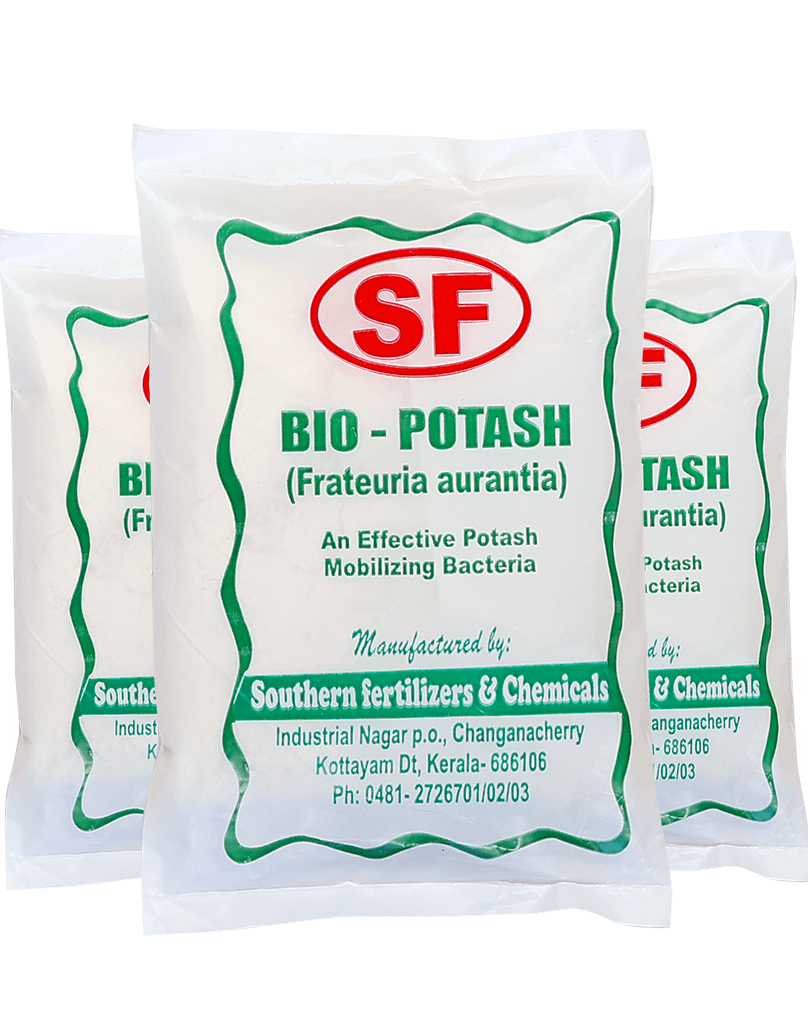
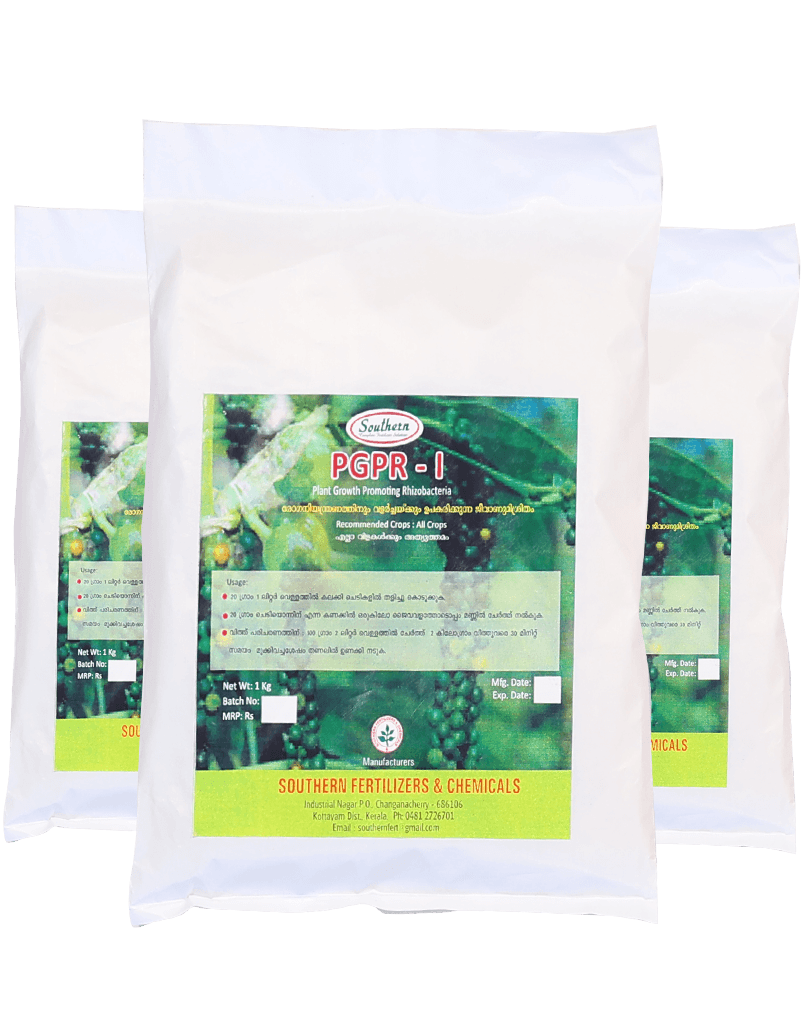
PGPR - 1 (Plant Growth Promoting Rhizobacteria)
PGPR contains a consortium of beneficial soil bacteria that stimulate plant growth by enhancing nutrient uptake, mobilization, and enrichment. These bacteria reduce the need for external application of NPK fertilizers. PGPR also modulates plant hormone levels, acts as biocontrol agents against pathogens, and can detoxify pollutants such as pesticides, contributing to a healthier environment.
Benefits:
- Nutrient Enrichment: Enhances nutrient uptake and mobility within plants, reducing the need for chemical fertilizers.
- Growth Stimulation: Promotes overall plant growth and development through hormonal modulation.
- Pathogen Control: Acts as a biocontrol agent, reducing the inhibitory effects of various pathogens.
- Environmental Detoxification: Helps detoxify pollutants like pesticides, contributing to a cleaner environment.
- Sustainable Agriculture: Supports sustainable farming practices by improving plant health and reducing chemical inputs.
Dosage: Mix 10 grams or 10 milliliters in one liter of water. Suitable for direct application to soil.

